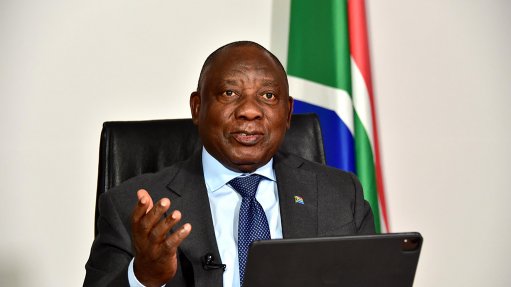
President Cyril Ramaphosa
President Cyril Ramaphosa sought to assure on Monday that while some public servants have been accused of corruption, most are “exemplary” civil servants that have kept the country going.
September marks Public Service Month in South Africa. Last year, Ramaphosa noted the need for a new integrated, responsive and adaptive service delivery model.
He cited the District Development Model and urged public servants to help identify ways to create a public service that advanced the interests and meets the needs of South Africans.
“Our commitment to building a State that is ethical, capable and above all developmental necessitates that civil servants see themselves not merely as state functionaries but as development workers. During this Public Service Month, we pay tribute to the many public servants who continue to make a positive difference in our country every day, and whose actions and performance embodies the principle of Batho Pele, of ‘putting people first',” Ramaphosa said.
He pointed out that since the Covid-19 pandemic, frontline health workers, the police, teachers and government officials had been hard at work to ensure that services were delivered.
“Our fight against the Covid-19 pandemic has demonstrated that we do have capable and committed public servants who diligently serve the people of South Africa,” Ramaphosa stated.
He noted that the pandemic had exposed the gap between planning and execution in service delivery as well as the fact that many government departments were not working together, as they should be.
Ramaphosa extended his gratitude to public servants, saying it was a calling.
“One speaks here of the grandmother who is assisted when she receives her grant every month; the critically-ill patient in the public hospital who is nursed back to health by caring staff; the social worker who helps to keep families together; the vulnerable woman who is treated with dignity by a member of the South African Police Service; and the businessperson who receives their documentation at the Home Affairs office on time to travel to expand their business,” he said.